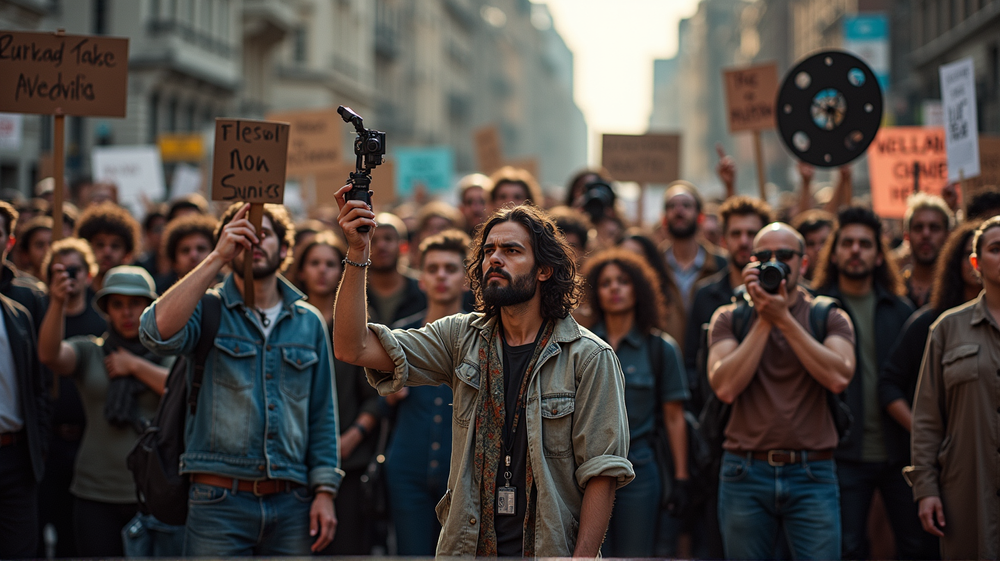An Unprecedented Artistic Solidarity
The global film industry has witnessed a significant upheaval as more than 1,300 artists, including renowned figures like Ayo Edebiri, Mark Ruffalo, Riz Ahmed, and Tilda Swinton, sign a petition to boycott Israeli film institutions. This initiative arises as a response to Israel’s actions in Gaza, which have drawn widespread condemnation. According to Al Jazeera, the artists label Israel’s actions as constituting genocide and apartheid, emphasizing their moral obligation to resist through cultural sanctions.
Historical Echoes: Inspiration from the Past
This move by the artists draws inspiration from the historic Filmmakers United Against Apartheid campaign, which famously opposed screening films in South Africa during its apartheid era. The current pledge underscores the power of film and celebrity to incite change and raise awareness about social justice issues. Mike Lerner, an acclaimed filmmaker and a signatory to the pledge, describes this endeavor as a “non-violent tool” meant to dismantle Israel’s unchecked actions against Palestinians.
Hollywood’s Evolving Stance
Traditionally, Hollywood has depicted positive narratives related to Israel. However, there is a noticeable shift as personalities from the industry increasingly voice opposition to Israeli policies. Emboldened by recent events, artists like Susan Sarandon and Melissa Barrera have publicly supported the Palestinian cause, even at personal and professional costs. Sarandon, for instance, lost her talent agency affiliation after participating in a Palestinian solidarity event.
Films Shaping the Narrative
Interestingly, the film industry itself is witnessing a change in portrayal, with films like “No Other Land” and “The Voice of Hind Rajab” gaining attention and accolades for highlighting Palestinian stories. The latter, depicting the intense ordeal of a young girl amidst the conflict, captivated audiences at the Venice Film Festival, eliciting a 23-minute standing ovation.
A Call to Action
The pledge is seen not just as a symbol of protest but as a call to action for the film community to leverage their influence. The statement accompanying the pledge articulates this sentiment: “As filmmakers and industry workers, we appreciate cinema’s power to shape perceptions, especially during crises like the current plight in Gaza.”
Concluding Thoughts
This collective action by artists marks a pivotal moment in the film industry, reflecting a broader global dialogue about ethics in art and entertainment. The pledge aims to shine a light on the pressing humanitarian crisis in Gaza and rally support for an independent and conscientious narrative within the cinematic world.












